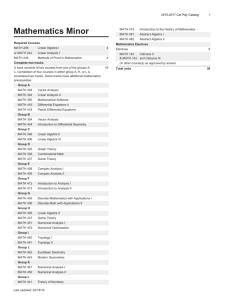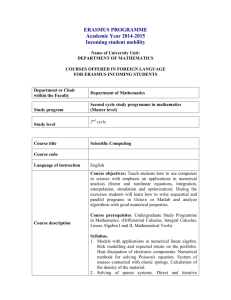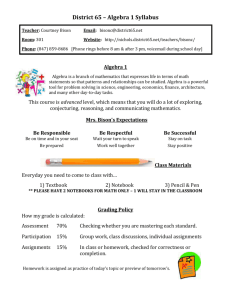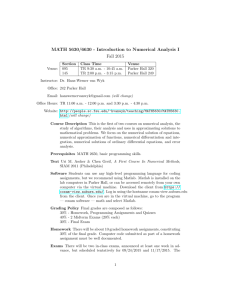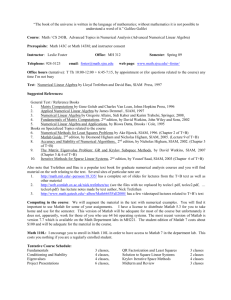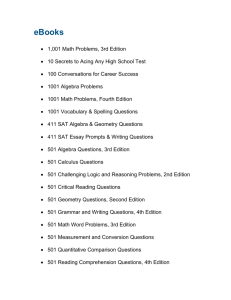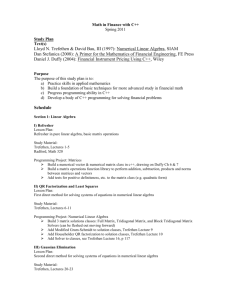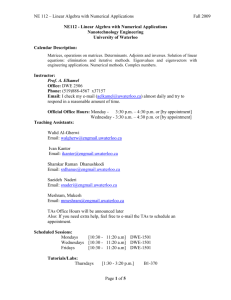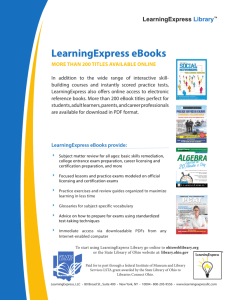Synopsis - Duke Mathematics Department
advertisement
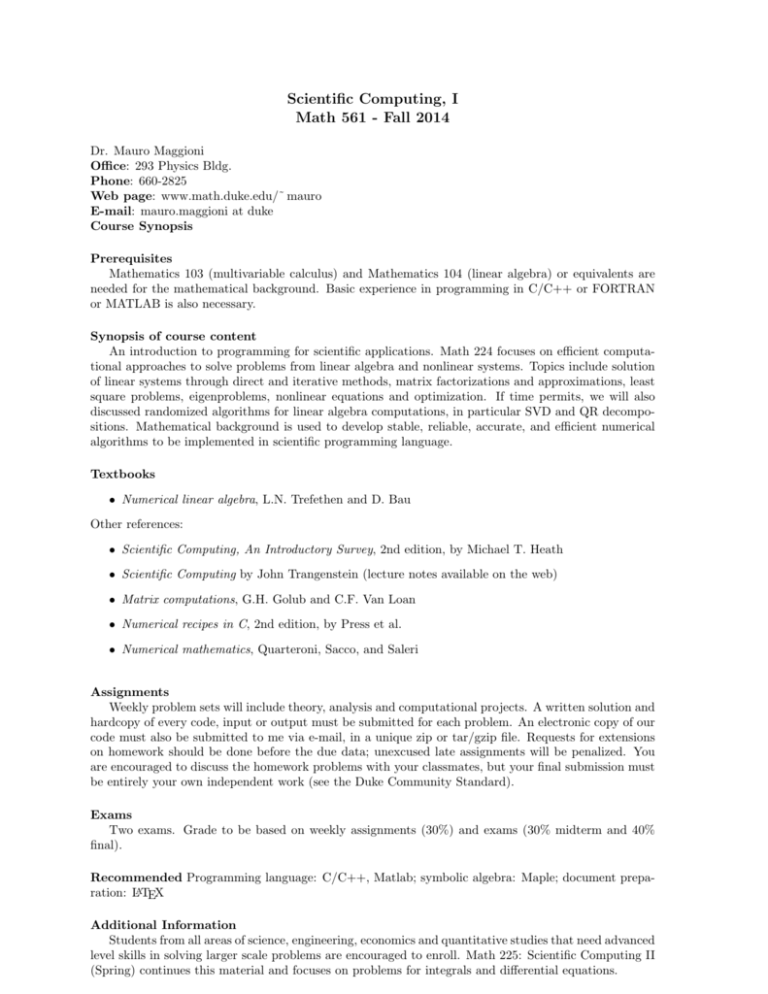
Scientific Computing, I Math 561 - Fall 2014 Dr. Mauro Maggioni Office: 293 Physics Bldg. Phone: 660-2825 Web page: www.math.duke.edu/˜ mauro E-mail: mauro.maggioni at duke Course Synopsis Prerequisites Mathematics 103 (multivariable calculus) and Mathematics 104 (linear algebra) or equivalents are needed for the mathematical background. Basic experience in programming in C/C++ or FORTRAN or MATLAB is also necessary. Synopsis of course content An introduction to programming for scientific applications. Math 224 focuses on efficient computational approaches to solve problems from linear algebra and nonlinear systems. Topics include solution of linear systems through direct and iterative methods, matrix factorizations and approximations, least square problems, eigenproblems, nonlinear equations and optimization. If time permits, we will also discussed randomized algorithms for linear algebra computations, in particular SVD and QR decompositions. Mathematical background is used to develop stable, reliable, accurate, and efficient numerical algorithms to be implemented in scientific programming language. Textbooks • Numerical linear algebra, L.N. Trefethen and D. Bau Other references: • Scientific Computing, An Introductory Survey, 2nd edition, by Michael T. Heath • Scientific Computing by John Trangenstein (lecture notes available on the web) • Matrix computations, G.H. Golub and C.F. Van Loan • Numerical recipes in C, 2nd edition, by Press et al. • Numerical mathematics, Quarteroni, Sacco, and Saleri Assignments Weekly problem sets will include theory, analysis and computational projects. A written solution and hardcopy of every code, input or output must be submitted for each problem. An electronic copy of our code must also be submitted to me via e-mail, in a unique zip or tar/gzip file. Requests for extensions on homework should be done before the due data; unexcused late assignments will be penalized. You are encouraged to discuss the homework problems with your classmates, but your final submission must be entirely your own independent work (see the Duke Community Standard). Exams Two exams. Grade to be based on weekly assignments (30%) and exams (30% midterm and 40% final). Recommended Programming language: C/C++, Matlab; symbolic algebra: Maple; document preparation: LATEX Additional Information Students from all areas of science, engineering, economics and quantitative studies that need advanced level skills in solving larger scale problems are encouraged to enroll. Math 225: Scientific Computing II (Spring) continues this material and focuses on problems for integrals and differential equations.
